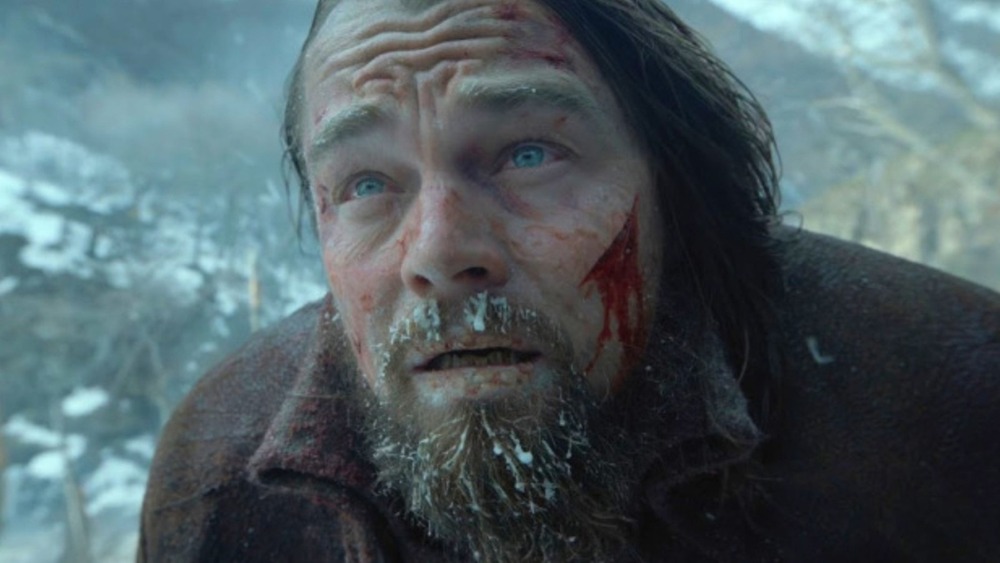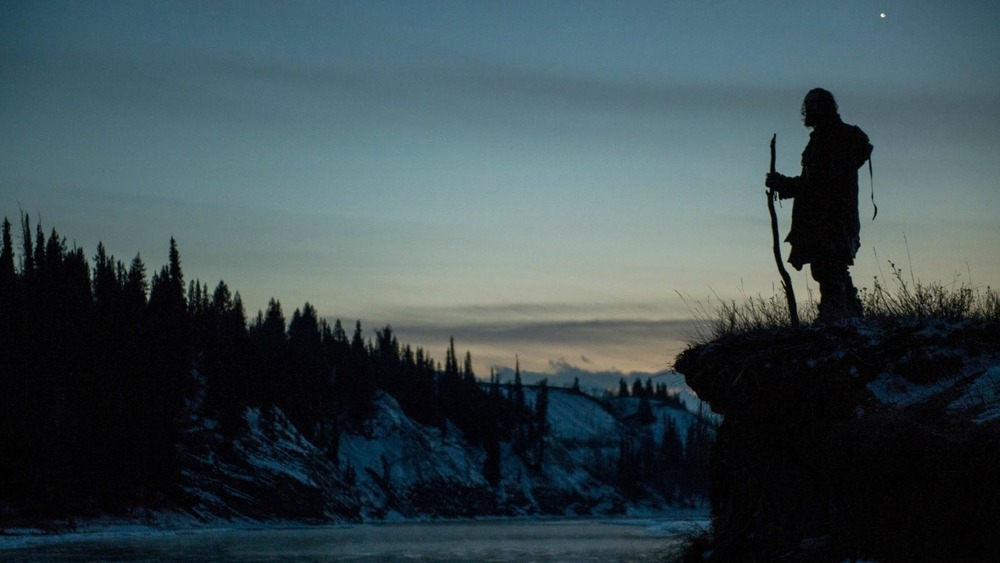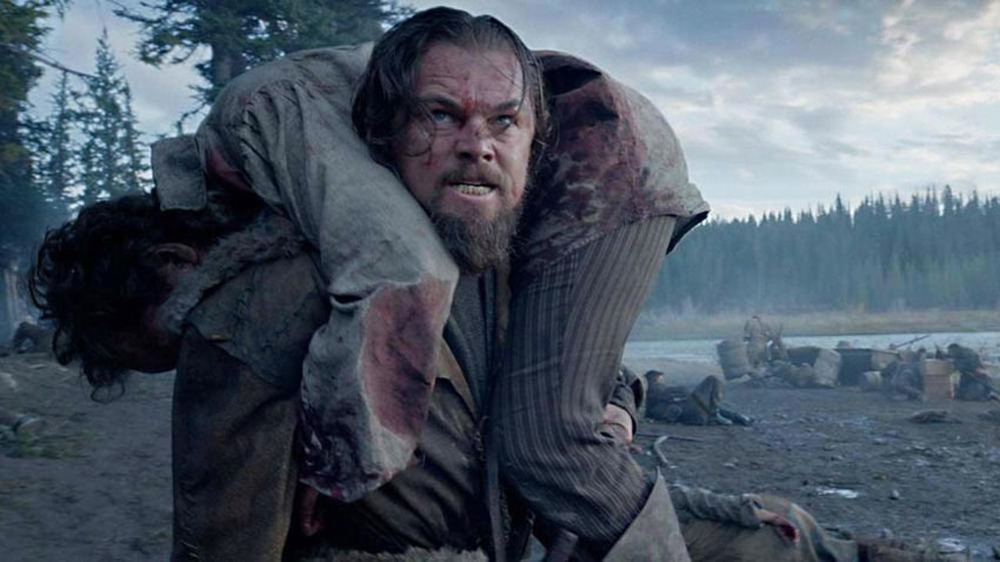How Accurate Is The Revenant?
The Revenant is a movie that's rooted in realism and survivalist grit, and it's enough to discourage anyone from ever leaving the comfort of their home. The 2015 Oscar Best Picture-nominee — which follows Hugh Glass, a trapper (portrayed by Leonardo DiCaprio) who embarks on a vengeance crusade through the harsh terrains of a treacherous frontier in the 1800s — put its star-studded cast and crew through the wringer. The film was also dogged by numerous behind-the-scenes difficulties that almost derailed the entire production. The Western was shot in the harsh Canadian wilderness using natural light, forcing the actors to cope with freezing temperatures and finish their scenes during the limited daylight hours they had each day. At the same time, it finally earned DiCaprio an Oscar that was arguably long overdue.
Given that The Revenant went out of its way to appear as authentic as possible, some people have wondered if the story was inspired by real events. It was indeed. However, while the film does incorporate actual history into its narrative, the filmmakers took some creative liberties with the material for the sake of creating more drama.
The Revenant is based on a true story
As The Hollywood Reporter pointed out, Hugh Glass was a real frontiersman, explorer, and fur trapper who traveled near the Upper Missouri River in the 19th century. That being said, early accounts of his life are unreliable and often fictitious. The Revenant is based on Michael Punke's 2002 novel of the same name, which was inspired by early 20th century poems that were lifted from the three earliest written accounts of Glass's adventures. Therefore, the depiction of those events should be taken with a pinch of salt as the authors of those texts didn't know Glass personally.
Some truths about the adventurer's life did make it into the story, though. According to History vs Hollywood, the cusp of the film's violent tale is based on a real botched adventure that played out close to the events in the movie. Glass was indeed attacked by a bear and left for dead by his fellow adventurers, including John Fitzgerald and Jim Bridger (played by Tom Hardy and Will Poynter, respectively). Glass gets payback in the movie, but he forgave his former comrades in real life. Of course, that's because the real Fitzgerald and Bridger weren't as rotten as they are in The Revenant.
The real Hugh Glass wasn't a family man
The fictional Glass had good reason for killing the men who left him to die in The Revenant. They murdered his son, after all. However, the movie painted Fitzgerald and Bridger in the absolute worst light, as this part of the story was completely fabricated for dramatic effect. There are no accounts of Glass ever having a child, so there's no telling if the two villains could have brought themselves to commit such a crime. Similarly, as The Guardian noted, there is no documentation to prove that Glass was ever in love with a Pawnee woman.
While the movie adds extra heaps of murder to satiate the audience's appetite for cinematic bloodletting, some of The Revenant's more violent scenes are historically accurate. The scene in which the adventurers are attacked by Arikara warriors is reminiscent of an incident that saw Andrew Henry (Domhnall Gleeson) and his men get into a scrap with members of the actual version of the aforementioned tribe, which resulted in between 12 to 18 deaths.


